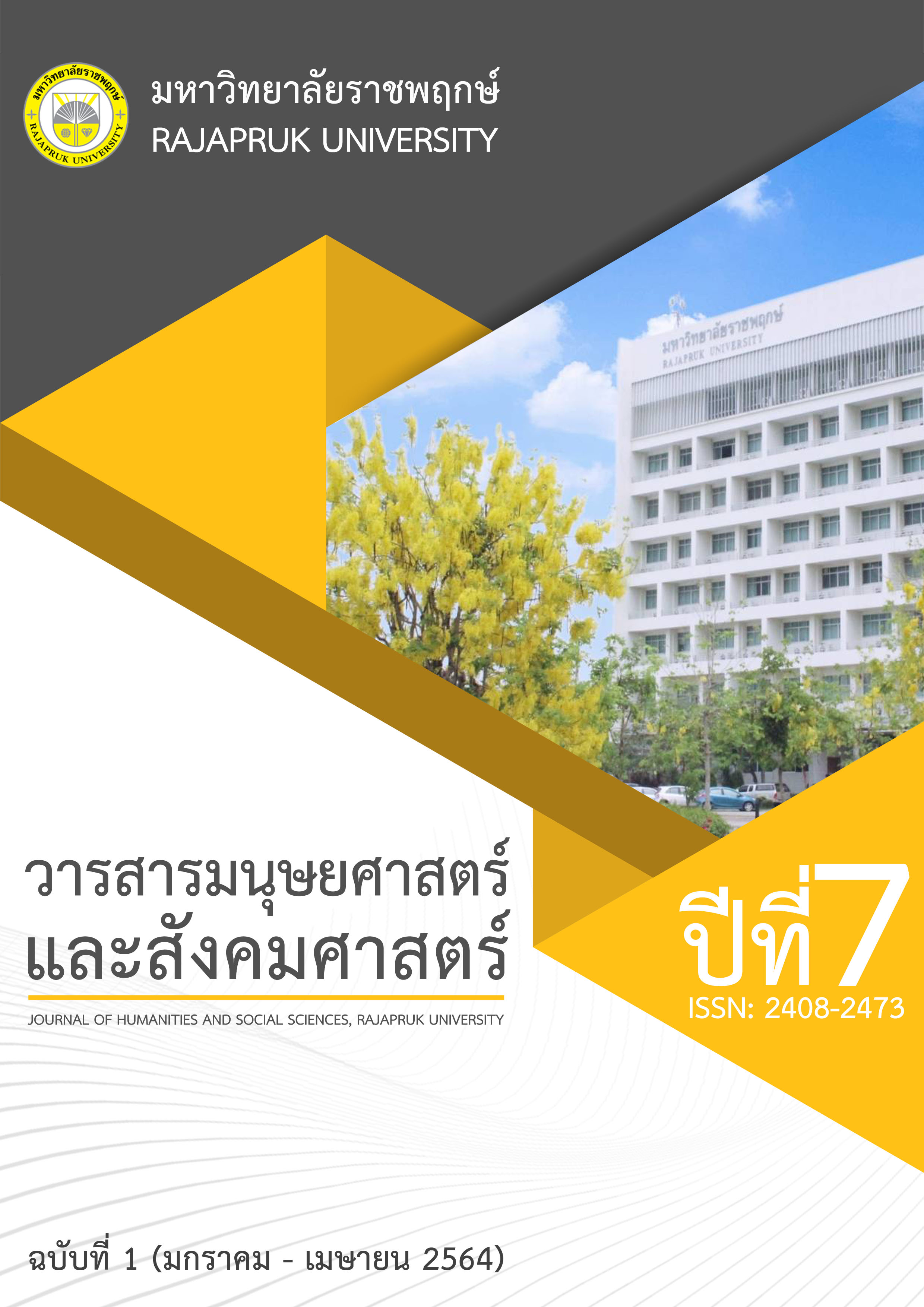Strategic Cost Management of the Product Organization in COVID-19
Main Article Content
Abstract
The current Cononavirus disease 2019 (COVID-19) epidemic is causing serious economic, society and politics problems. Including how to citizens around the world spending their lives. The global economy was severely depressed. All business sectors were disrupted. Some organizations was closed and eventually shut down caused the termination of employment. People have suffered from such consequences. On the other hand, businesses will face intense competition due to the highly competitive environment in the globalized world, Natural Circumstances, Changing Society and Politics.
From this situation, business organizations have established strategies for their survival. The organization showed enthusiasm for solving the crisis. To find the way to manage costs in the organization to survive in the high competition in the turndown economic from the problem of the spread of the COVID-19 virus that is currently facing. Therefore, the organization and cost strategy could be adapted to the organization in order to lead the business to survive. Management has to consider several organizational strategies in order to increase its competitiveness in the increasingly complex. Therefore, the business process has been adjusted for efficiency. The organization must have a Management Control System implementing a cost management strategy by using the concept of management cost accounting. There are two objectives, which are Decision-Making Roles and Roles in Cost-Effective Management. The Strategic Cost management includes Activity Management, Target cost, Cost Cycle, Total Cost Management, Time Management, Lean production, Sustainability Accounting, etc. Such a strategy that can be enhance competitiveness will benefit the organization and the national economy.
Article Details
References
ธีรชัย อรุณเรืองศิริเลิศ. (2553). การประยุกต์ใช้ระบบต้นทุนฐานกิจกรรม. วารสารวิชาชีพบัญชี, 6(17): 86-89.
นิพันธ์ เห็นโชคชัยชนะ และ ศิลปพร ศรีจั่นเพชร. (2554). ทฤษฎีการบัญชี. กรุงเทพฯ: ทีพีเอ็นเพรส.
วิจิตรา พูลเพิ่มทรัพย์. (2544). หลักการบัญชีต้นทุน. กรุงเทพฯ: มหาวิทยาลัยเกษตรศาสตร์.
สมนึก เอื้อจีระพงษ์พันธ์. (2546). การบัญชีเพื่อการจัดการและการบริหารต้นทุน. กรุงเทพฯ: ธรรมนิติเพรส จำกัด.
Alles, M., Datar, S.M., & Lambert, R.A. (1995). Moral hazard and management control in just-in-time Settings. Journal of Accounting Research, 33: 177-204.
Ansri, S., Bell, J., & Swenson, D. (2006). A template for implementing target costing. Cost Management, Journal of Cost Management, 20(5): 20-27.
Baykasoglu, A., & Kaplanoglu, V.(2008). Application of activity-based costing to land Transportation company: A case study. Retrieved on 12th April 2020, from http://www.researchgate.net/publication/22225361_Application_of_activity-based_costing_to_a_land_transportation_company_A_case_study.
Bhimani, W. (1984). Modern cost management: Putting the organization before the technique. International Journal Organizational Analysis, 6(3): 29-34.
Chenhall, R.H., & Langfield – Smith, K. (1998). The relationship between strategic priorities, management techniques and management accounting: An empirical investigation using a systems approach. Accounting, Organizations and Society, 23(3): 243–264.
Cooper, R., & Langfield-Smith, K. (1998). Develop profitable new products with target costing. Sloan Management Review, 40(4): 23-33.
Degraeve, Z. & Roodhooft, F. (2000). A mathematical programming approach for procurement using activity based costing. Journal of Business Finance & Accounting, 27: 69-98.
Kouvelis, P.C., Chambers, & Wang, H. (2006). Supply chain management research and production and operations management. Review, trends, and opportunities, Production and Operations Management, 15(3): 449-469.
Marcelino_Aranda, M., Ramirez Herrera, D., & Yarto Chavez, M. (2013). Quality management system case study, in a Mexican company service. Journal of Basic and Applied Scientific Research, 3(1): 67-77.
Maskell, B.H., & Baggaley, B.L. (2006). Lean accounting: What’s it all about? Retrieved on April 8, 2020, form http://www .lean accountingsummit.com.
Oluwagbemiga, O.E., Olugbenga, O.M. and Zaccheaus, S.A.(2014). Cost Management Practices and Firm’s Performance of Manufacturing Organization, International Journal of Economics and Finance, 6(6): 234-239.
Rodriguez-Lazaro, D. (2013). Real-time PCR in food science: Current technology and applications. Norfolk, UK: Caister Academic Press.
Schmelize, G., Geier, R., & Buttross, T.E. (1996). Target costing at ITT automotive. Management Accounting, 78(6): 26-30.
Simoes, C.L., Costa Pinto, L.M., Simoes, R., & Bernardo, C.A. (2013). Integrating environmental and economic life cycle analysis in product development: A material selection case study. The International Journal of Life Cycle Assessment, 18(9): 1734-1746.
StenZel, J. (2007). Lean accounting: Best Practices for sustainable integration. New Jersey: John Wiley & Sons.
Sunil, C., & Peter. M. (2007). Supply chain management strategy, planning & operations. New York: Pearson Education.


